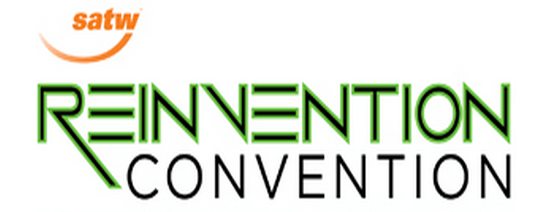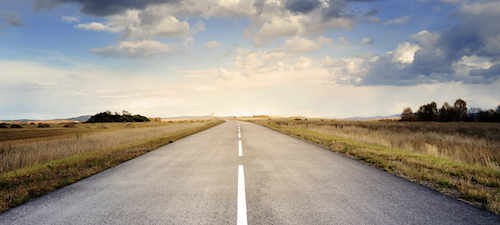Hertz Europe Celebrates A Century With #HertzSuperStart
In 1918, Hertz's founder Walter L. Jacobs opened a car rental business in Chicago, U.S. that later expanded to become the first global car rental...
5 min read
Emma DeVadder : October 14, 2015

A four-day 60th birthday party (yes, there was a large birthday cake) in Downtown Las Vegas…. sounds like a good time doesn’t it? Of course, Society of American Travel Writers (SATW) conventions are always fun and entertaining; catching up with old contacts, colleagues, and friends and meeting new ones, usually on location in a destination few attendees have previously visited – what’s not to enjoy?
This year’s event was no exception on the fun front, but with the Society celebrating a significant anniversary and milestone of successfully making it to 60 years, the unique chance that the conference offers to make meaningful industry connections in a media market more cluttered than ever, seemed especially poignant. Furthermore, the theme of “reinvention”; fitting for both the Downtown Vegas location (more on this later) and SATW’s ambition and efforts to evolve and continue to be at the forefront of travel and media trends and opportunities for its members, provided a new and interesting lens through which to view and experience the Convention.
The topic of reinvention carried through the professional development sessions and messages from keynote speakers. Here are some of the highlights and top takeaways:
As president and CEO of the U.S. Travel Association (USTA), the national trade association representing all segments of America’s $2.1 trillion travel industry, Dow is certainly qualified to talk about the rapidly changing travel landscape as well as USTA’s own transformation. Over the past 10 years, Dow has lead the charge in changing a formerly fragmented organization into a united advocacy force now recognized as one of the U.S.’s most effective industry associations. Dow’s overview and argument for the Open Skies agreement, along with general pro-competition, pro-traveler and pro-growth-and-change attitude, was inevitably well-received and overridingly a case of preaching to the already converted.
Dow’s biggest hit with the audience, however, was the promotion of Project Time Off (PTO); the campaign for encouraging Americans to take more vacations and to shift culture so that personal time off is not considered frivolous but essential for a number of reasons, highlighted in a video on “the upside of downtime.” Sadly, in recent years Americans have been taking fewer vacations instead of more, with a decline from an average of 20 down to 16 days. PTO is designed to stress the importance of taking time off to recharge and connect with whatever matters most; be it family, friends, nature, and ideally exploring new or revisiting favorite places. Not only does taking time off work deliver personal gain, it provides a proven return on investment for companies benefiting from increased productivity and new perspective from refreshed employees, as well as being good for the overall economy. Some staggering stats:
Likely you don’t need convincing of the huge value of PTO, but to eradicate any doubts whatsoever check out MasterCard’s “one more day is priceless” ad…. and sold!
An interesting panel discussion with examples including the Las Vegas Downtown Project, Portland Development and Austin Revitalization. These dynamic cities showcased urban renewal as a viable travel story and how urban development relates and contributes to the special story and history of a place. A useful reminder on how revitalization translates to a great experience for travelers to a city, making it a more compelling place to visit and write about.
In summary, any destination earning the reputation as a desirable place to live will naturally (and enhanced through our PR efforts) translate as a prime place to visit. Kudos to our Toronto client for making it to the top of Metropolis magazine’s recent list of the world’s most livable cities; the city’s reputation for offering high quality of life certainly aids our ability to tell the story of Toronto as an equally awesome place to visit.
In a world increasingly obsessed with the next big thing, travel trends are a fast-moving target and something PR professionals need to constantly stay on top of in order to be experts to our clients. Presented by experts from Travelocity, Trivago and AAA, here are some of the 2015 trends you may have missed and 2016 trends on the horizon:
A forward-looking discussion from industry leaders at TripIt, Phocuswright and Tnooz, covering how technology is shaping the way we travel, along with the millennial mindset, which is changing our travel preferences and pioneering new frontiers in the travel space. Based on the trends we’re watching constantly change and develop today, it’s perhaps never been more interesting to consider what the modern traveler may look like in five or 10 years and beyond. Here are some valuable insights:
The theme of the Convention was reinvention, but “ reimagining” would be just as apt. We’re all authoring our own many channels, with more platforms than ever before, and are fortunate to be able to curate our own travel experiences with record freedom, ability and options. With this in mind, it’s maybe more inspiring to keep remembering to reimagine; to refuse to settle for status quo and to always strive to creatively look how to shape the future of storytelling, for clients and ourselves.

In 1918, Hertz's founder Walter L. Jacobs opened a car rental business in Chicago, U.S. that later expanded to become the first global car rental...

Canada is throwing a nationwide birthday party for itself throughout 2017 – hey, you only turn 150 years old once. Of course, Canada is a big place....

The tourism landscape continues to evolve and 2024 promises a diverse array of new reasons for consumers to travel. We’ve done the heavy lifting of...